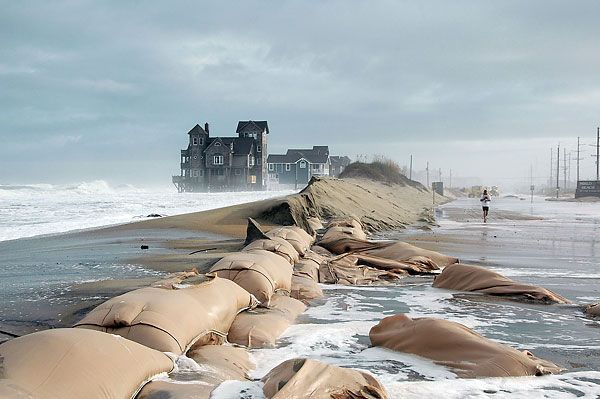Science Daily reported yesterday on new research which suggests that cutting emissions of four specific pollutants could significantly slow down sea level rise in this century.
Carbon dioxide is believed to be the main culprit in global warming. The gas remains in the atmosphere for centuries, and essentially acts as a blanket, trapping heat on Earth’s surface. The resulting warming results in melting of ice at the polar ice caps, which leads to higher sea levels. The bulk of the human population lives in coastal regions, and sea-level increases could threaten the lives and livelihood of billions of people over the next century.
While the researchers caution that methods to decrease CO2 emission should be pursued, their models suggested that cutting emissions of four pollutants — methane, tropospheric ozone, hydrofluorocarbons, and black carbon — could cut sea level rise by as much as 25 to 50 percent over the next several decades.
These pollutants are short lived in the atmosphere, and in the short term contribute to significant warming. They were also targeted because the technology exists today to reduce their emissions, and those cuts won’t adversely impact the economy.
While such cuts might not be a long term solution for global warming, they could give coastal cities breathing room to prepare for higher sea levels to come.















